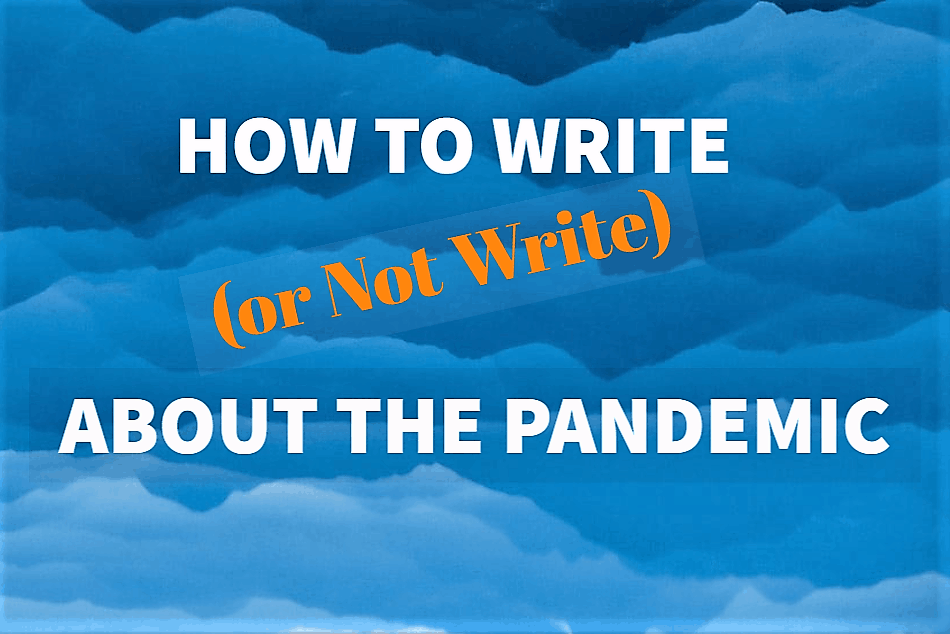Many fiction writers with recent publications worry about their relevance in a changed world. In their novels, characters are hugging, riding roller coasters and exchanging sloppy kisses. No one does that anymore.
A contrary view: these novels chronicling our much-lamented recent past are incredibly appealing to today’s readers. All of us want to return to that world.
Events like 9/11 or the advent of cellphones similarly separated novels’ time settings into a Before and After. However, in the here and now of our pandemic world, a universally tortuous psychological aspect is its uncertainty. How long will this go on, and what does the future look like? Career authors wonder if the novel they write today will be pertinent in an ill-defined future. Says literary agent Amanda Urban in the New York Times: “It’s a hard subject for writers to write, and it’s hard for publishers to buy, because you don’t know what the narrative arc is yet.”
Today’s publishing news
Yet commerce continues apace. My agent friends tell me that they are selling books to publishers, even though it might be even a bit more difficult these days for debut authors. Book editors working from home are feeling compelled to justify their salaries: solid acquisitions are one way to do that. And publishers are moving large quantities of books through Amazon, bn.com and Target. People in quarantine want to read.
A recent PubLunch announcement caught my eye. Avon Books acquired Chloe James’ Love in Lockdown, “a love story about meeting the right person at the wrong time.” Non-fiction works, self-help books and poetry collections on the subject are also being snapped up by publishers.
Lawrence Wright’s eerily prescient pandemic thriller, The End of October, is flying off the shelves. On a sour note, a recent review of the book deemed it exploitive of pandemic misery. A ridiculous charge, given that Wright’s novel was no doubt turned into its publisher months before the Wuhan outbreak.
Subject matters
Some might feel it is exploitive to write about the pandemic. Others may feel it’s foolish not to acknowledge a shared global experience.
A Slack book club I was part of recently read Albert Camus’ The Plague and elicited thought-provoking observations. I appreciated the author’s message of love, and his sensitive depiction of people good and bad under quarantine. But despite the novel’s brilliance, it didn’t make me feel any better.
Do you want to read it? Will you want to read it a year from now?
Career authors must plan ahead
After writing their novel and turning it into their publisher, authors are lucky if their book is published twelve months later. Generally, it takes longer. Career Authors must carefully consider their strategy.
What role should the pandemic have in your novel?
- A major plot point. Isn’t reality always a stepping off place for fiction? Some might deem it cashing in on the pandemic. Others might feel it’s writing about reality. You embrace it fully. This might mean writing a mystery about a pandemic outbreak or a bio-thriller or a sensitive literary novel of a couple in quarantine. You have accepted the pandemic as a reality that can’t be avoided.
- No references. Your story has nothing to do with the pandemic. It exists in a world like the one we used to know, one we hope for in the future. In restaurants, recent acquaintances share cheese fondue.
- “The bad time last year when we had to stay inside.” There might be a middle ground: a tweaked reality that references some version of the recent unpleasantness. Your characters face the usual human problems and drama in a slightly altered world.
- Hedge your bets. One agent I spoke to worries that future readers are not going to want to read about the pandemic. She feels the time to write about the pandemic is when it’s over and we know what happened. Given how fluid the present situation is, she suggests not fashioning a plot contingent on pandemic details and keeping references to it at a minimum—perhaps in ways that can be excised as the unknown future plays out: masks might be removed later. Writers might play it safe while plotting. The focus may be more interior. Gatherings of people in the story are smaller. There are no crowds or big weddings. This agent suggests avoiding big cities as a setting.
- Different time/different place. A sci-fi novel may have drastically diverse themes in an entirely altered setting. Not a bad idea if you don’t like present-day boundaries. Or is now the time to revive that historical fiction novel idea you had about Benjamin Franklin solving crimes? Times gone by remain unchanged. The past is known, and the distant future or another world need not abide by setting restrictions. A fantasy world is just that. When writing in these areas, your imagination is unfettered by the dreary present.
All fiction may be speculative fiction: we can’t know what’s around the corner. But now more than ever, career authors are struggling to anticipate the unknown. And publishers will be carefully monitoring what sells and what does not.
Advising today’s career authors, agent Paula Munier says, “The bigger the idea, the more high-concept, the better. Or, on the contrary, write a sweet little story that makes readers feel good.”
How will you address the pandemic in your writing? (Or do you know?) Share your thoughts with us on Facebook.





